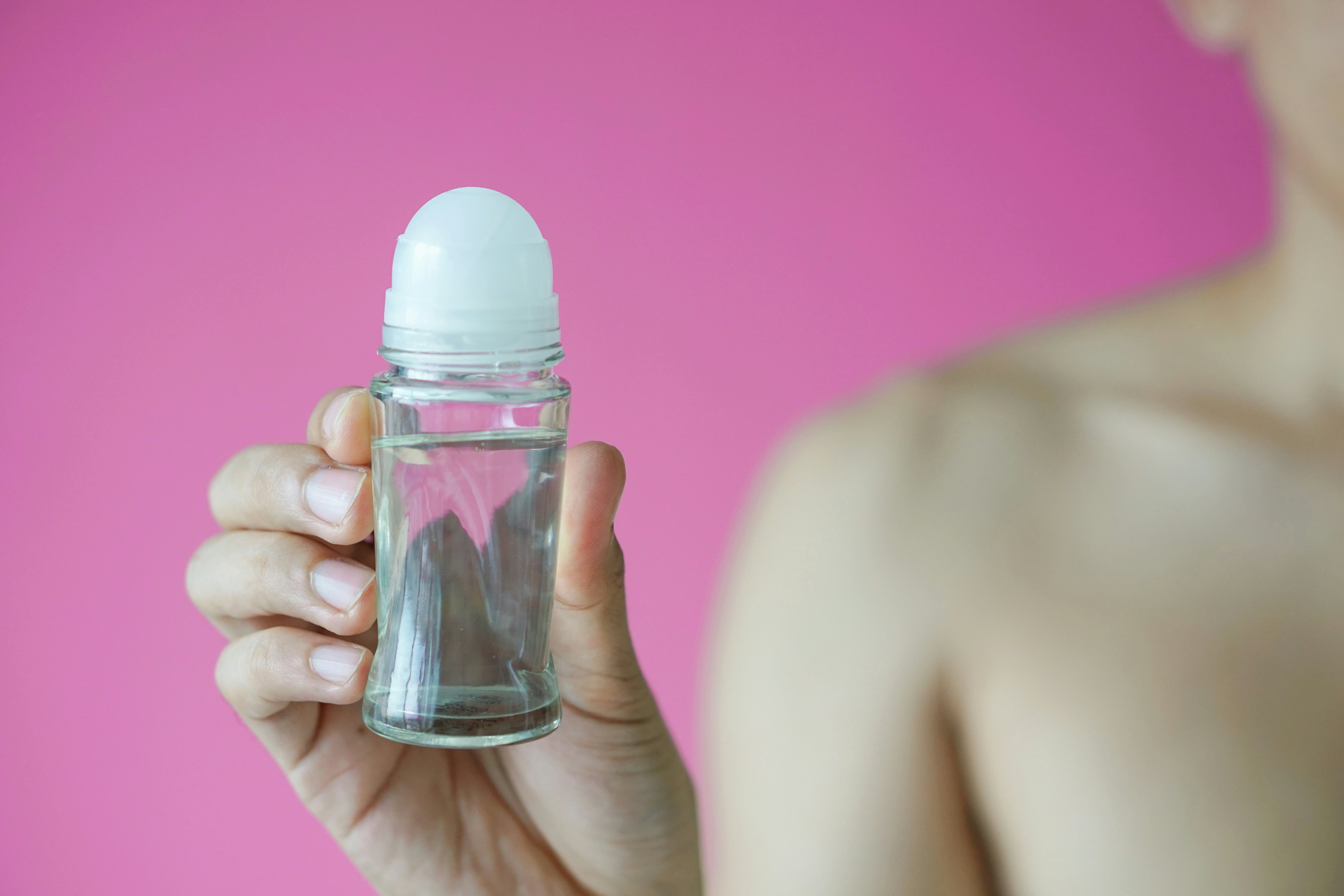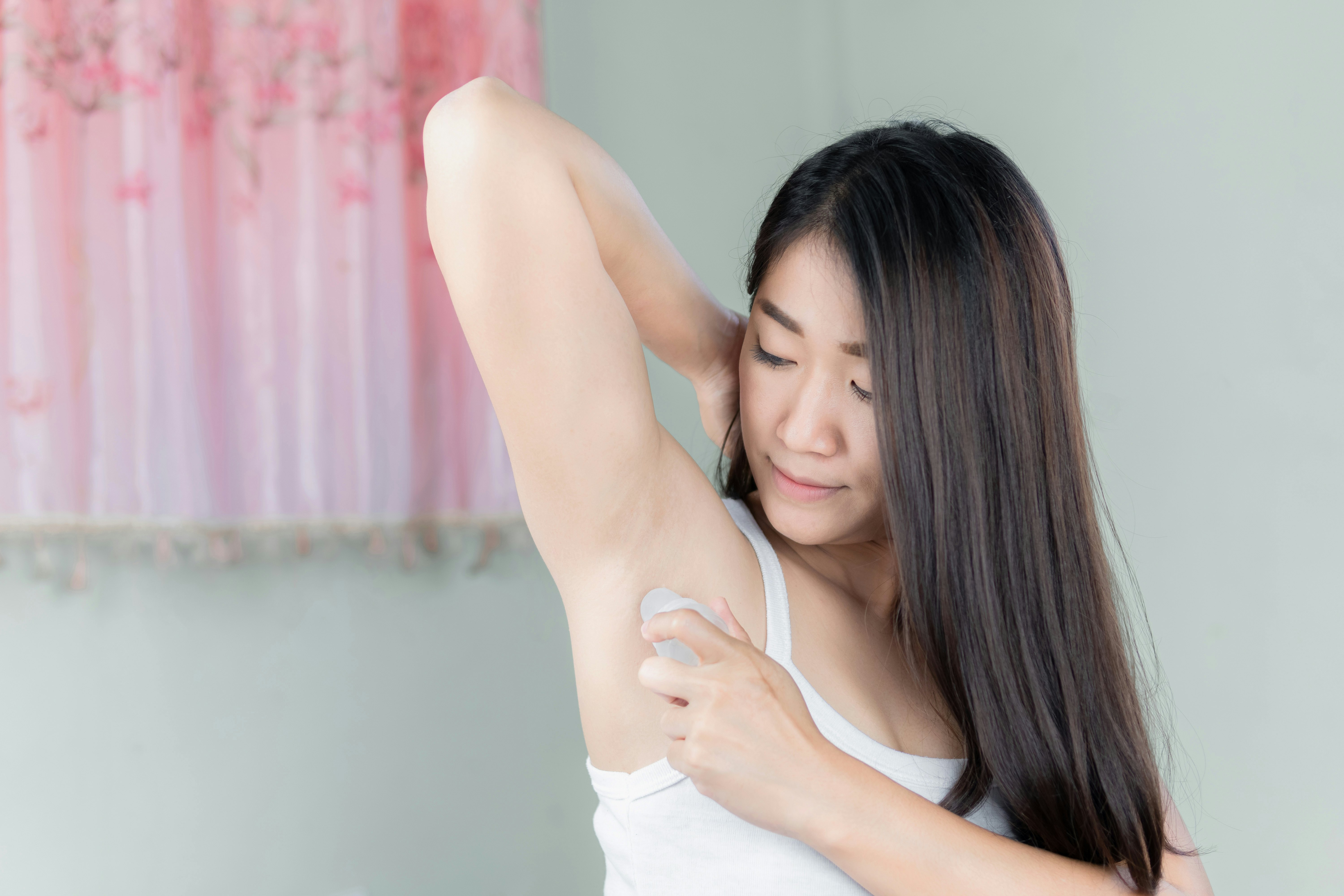
I was in high school when I first heard someone claim that antiperspirants could cause cancer. Ironically, the friend who said this was a smoker. My pal exhaled a plume of smoke, nodded to the travel-size antiperspirant I had in my backpack, and said, “you know that’ll give you cancer.”
I replied: “You are literally smoking right now.”
While the evidence about tobacco smoke causing cancer is well established and has been for decades, my friend was the first person I’d heard articulate a concern about antiperspirant use and cancer, specifically breast cancer. But she almost certainly wasn’t the only person who was concerned. Natural deodorants, specifically formulated without aluminum or parabens, are a more than $63 million industry and growing.
According to the American Cancer Society, however, “there are no strong epidemiologic studies in the medical literature that link breast cancer risk and antiperspirant use, and very little scientific evidence to support this claim.”
However, a product doesn’t have to cause cancer for there to be good reasons to avoid it. So how does antiperspirant work, and how safe is it to use? What, if any, ingredients should you most try to avoid? Inverse spoke to dermatologists to help you parse antiperspirant myths from reality.
What’s the difference between antiperspirant and deodorant?
Antiperspirant and deodorant often come in a two-in-one formula, but they work through different mechanisms. Deodorant, as the name implies, is simply a product that neutralizes the scent of sweat-metabolizing bacteria (body odor). It does so both through its own fragrance as well as by killing some of the bacteria making your pits stinky in the first place. It does not prevent perspiration.
Antiperspirant does prevent sweating. The mechanisms by which it does this will somewhat depend on the formulation of the product, but products containing metallic salts like aluminum work by physically blocking the sweat glands. Prescription products that contain anticholinergic substances like glycopyrrolate work by reducing the activity of receptors on the sweat glands, resulting in decreased perspiration.
What does the research say about antiperspirants and cancer?
Researchers haven’t found any links between using antiperspirants and developing breast cancer.

According to The Guardian, the myth may have started in the late 1990s, when a chain email made the rounds suggesting that the body eliminates toxins through perspiration and that when armpit sweat glands are blocked, “toxins built up in the lymph nodes behind them, causing cancer in the upper outer quadrant of the breast.”
While sweat is undoubtedly one way the body eliminates “toxins,” it’s not the only way, or even the primary way. Further, sweat is excreted from the body all the time, and it’s not always through our armpits. The “toxin buildup” claim was dubious, but researchers nonetheless investigated. Around this time, the additional myth that shaving one’s armpits and using antiperspirant is especially dangerous surfaced.
However, a study published in 2002 in the Journal of the National Cancer Insitute looked at more than 1600 women; roughly half had breast cancer, and half didn’t. The researchers found no link between breast cancer risk, underarm shaving, or the use of antiperspirants.
Subsequent studies have found equally little association.
So why the persistent myth? In 2003, researchers sent questionnaires to women who had breast cancer. The researchers found that women diagnosed with cancer at a younger age started shaving their armpits and using antiperspirants more often than women diagnosed at an older age. Crucially, however, there was no control — or comparison — to women who didn’t have cancer. According to the American Cancer Society, “the study design did not include a control group of women without breast cancer and has been criticized by experts as not relevant to the safety of these underarm hygiene practices.”
What do we know about the safety of parabens and aluminum in antiperspirants?
Among the most scrutinized ingredients in antiperspirants are parabens and aluminum.
Parabens are preservatives and are used to prevent the growth of harmful bacteria and mold. They’re found in many personal care products, such as moisturizers, shower gel, shampoo, and face cream, Shoshana Marmon, an assistant professor and director of clinical research in dermatology at New York Medical College and board-certified dermatologist in New York, tells Inverse. That doesn’t necessarily make them good or bad; it just makes them prevalent.
The CDC cites evidence that “parabens that enter the body are quickly excreted,” and “human health effects from environmental exposure to low levels of parabens are unknown.” Some studies have found an association between early onset puberty in girls and chemicals like parabens, but the link has yet to be definitively established.

While aluminum may sound like a risky thing to put under your arms, studies have found that only a tiny amount (0.012 percent) of the aluminum chlorohydrate applied to the underarms in antiperspirant was absorbed. According to the American Cancer Society, “The actual amount of aluminum absorbed would be much less than what would be expected to be absorbed from the foods a person eats during the same time.”
Marmon agrees: “Since the deodorant or antiperspirant is usually only applied to small areas locally, these chemicals are really not getting absorbed by the body in significant quantities to cause any harm.”
What dermatologists have to say about antiperspirant
Ivy Lee, a board-certified dermatologist in Los Angeles, says she doesn’t have any concerns about the ingredients in antiperspirants in their current formulations.
“There have been few reports of parabens associated with allergic contact dermatitis, endocrine disruption and breast cancer, but the scientific evidence is not robust or persuasive enough to deter me from using these ingredients,” Lee tells Inverse.
Nor does she have concerns about antiperspirants plugging the sweat duct. “The antiperspirant [only] temporarily and superficially plugs the sweat duct,” she says. “When applied to focal and small areas such as the axilla, it likely does not significantly impact our body's ability to regulate temperature.”
Marmon agrees. “Ideally, an antiperspirant shouldn’t cause a skin reaction and just acts to block the release of sweat in a temporary manner,” she tells Inverse. “If someone develops redness or irritation from their deodorant or antiperspirant, that is considered a ‘contact dermatitis.’ Often, it is the fragrance in these formulations that causes the irritation. So, dermatologists usually recommend fragrance-free alternatives for people with sensitive skin.”
Is a plugged sweat duct like a clogged pore?
Plugged sweat ducts differ from clogged pores. “‘Clogged pores’ usually refer to comedones which are hair follicles that are blocked by keratin from dead skin cells and oil,” Lee says. “Sweat ducts are tubular structures that are independent [of] the hair follicle. The antiperspirant plug in the sweat gland does not cause inflammation.” Comedones can be associated with inflammation: a prime example being acne.
Finally, just because we don’t have evidence that the ingredients in antiperspirants are harmful to one’s health doesn’t mean you have to feel comfortable using them.
“There are more and more people that wish to only use ‘all-natural’ ingredients in their self-care and cosmetic products and there are many great products to try in this category,” Marmon says. “In general, dermatologists tend to recommend fragrance-free, hypoallergenic deodorants and skin care products to avoid unnecessary irritation.”
Lee agrees, “I think there is increasing interest in skincare ingredients...in Los Angeles, where I practice, many patients prefer products with simpler ingredient lists and formulations,” Lee says.
Fortunately, there are plenty of natural deodorants that, while they won’t prevent sweating, can help you from smelling like it.







